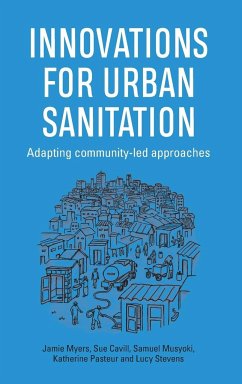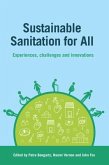Over half the world's population now lives in urban areas and a large proportion of them lives without improved sanitation. Efforts to tackle open defecation in rural areas has been led by the Community-led Total Sanitation (CLTS) movement. But how can the community mobilization techniques of CLTS be adapted to the more complex situations and transient populations in urban areas? How can landlords as well as tenants be motivated to provide and use safely managed sanitation? Innovations in Urban Sanitation has been developed in response to calls from practitioners for practical guidance on how to mobilize communities and improve different parts of the sanitation chain in urban areas. Urban Community-Led Total Sanitation is potentially an important piece of a bigger puzzle. It offers a set of approaches, tools and tactics for practitioners to move towards safely managed sanitation services. The book provides examples of towns and cities in Africa, South Asia and South-East Asia which have used these approaches. The approach has the potential to contribute not only to Sustainable Development Goal (SDG) 6 on water, sanitation and hygiene and SDG 11 on cities but also those concerning the reduction of inequalities and the promotion of inclusive societies. As a pro-poor development strategy, U-CLTS can mobilize the urban poor to take their own collective action and demand a response from others to provide safely managed sanitation, hygiene and water services which leave no one behind.
Hinweis: Dieser Artikel kann nur an eine deutsche Lieferadresse ausgeliefert werden.
Hinweis: Dieser Artikel kann nur an eine deutsche Lieferadresse ausgeliefert werden.








